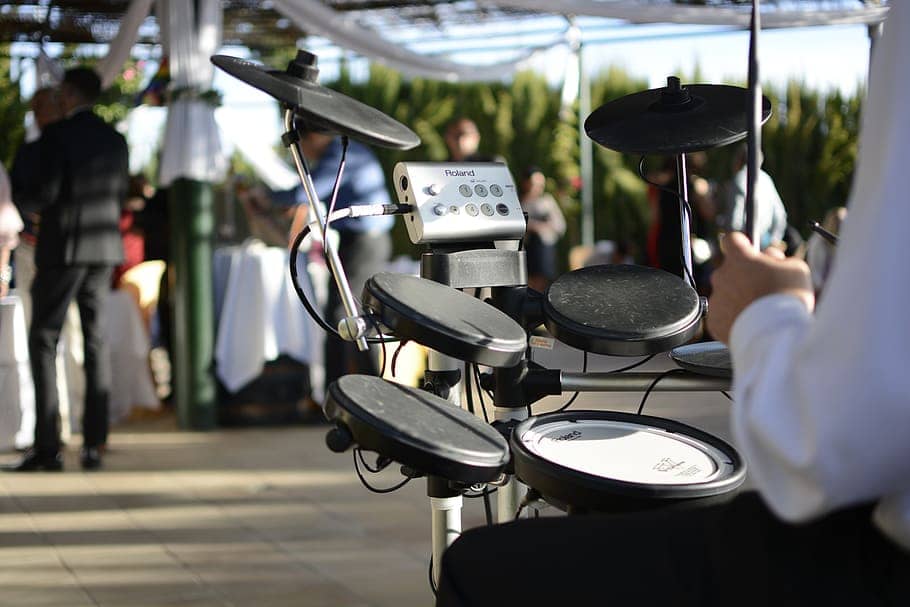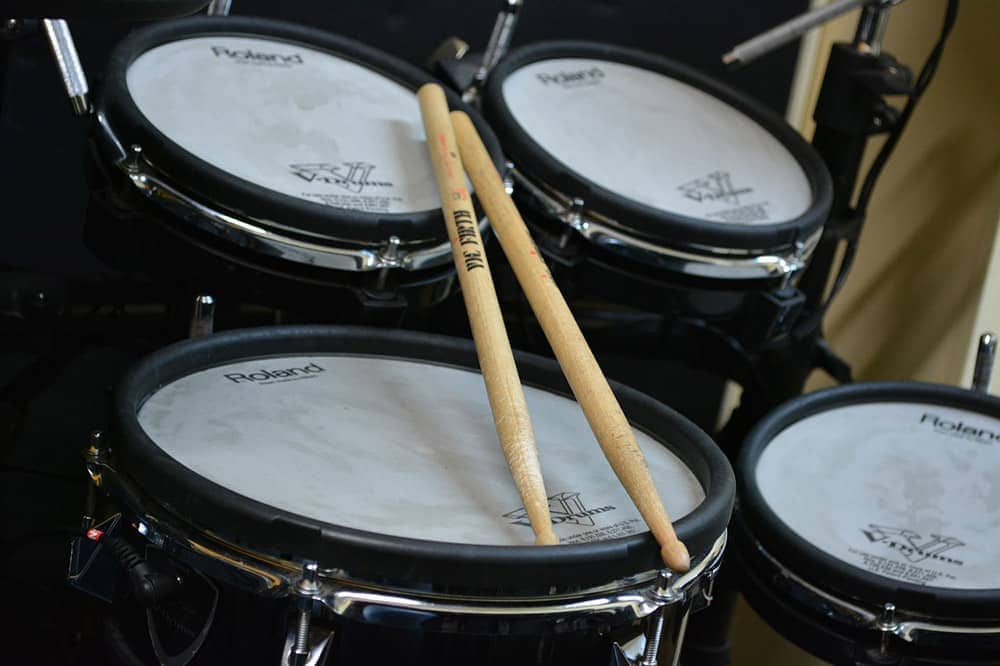Are electronic drums worth it?
Absolutely, electronic drums are worth considering for many reasons. They offer volume control, a wide range of sounds, and the ability to practice quietly with headphones, making them ideal for urban living.
They’re also portable, easy to expand, and low maintenance, suiting various lifestyles and skill levels. For those interested in recording or integrating with digital music tools, electronic kits provide seamless connectivity.
While they may have a different feel than acoustic drums, the benefits they bring, especially for practice and home use, make them a valuable investment.
Why do people use electronic drums?
People turn to electronic drums for their versatility and convenience. They’re used for quiet practice, avoiding noise complaints in tight living spaces.
Their vast sound libraries allow drummers to explore different styles without needing multiple acoustic sets. Electronic drums are also favored for their portability, making them easy to transport to gigs or rehearsals.
Additionally, they’re ideal for recording, offering clean, direct sound without the hassle of mic setups. Lastly, their low maintenance and durability are attractive for those looking to reduce upkeep time and costs.
What are the disadvantages of electronic drums?
While electronic drums have many advantages, there are some drawbacks. The feel of hitting an electronic pad can differ from an acoustic drum skin, which might affect playing dynamics for some drummers.
There’s also the aspect of authenticity; some purists believe electronic drums can’t fully replicate the nuanced tones of acoustic sets. Additionally, high-quality electronic drum sets can be expensive, potentially putting them out of reach for beginners.
Lastly, they require power and, in some cases, a learning curve to navigate the electronic features and settings, which might be daunting for less tech-savvy users.


